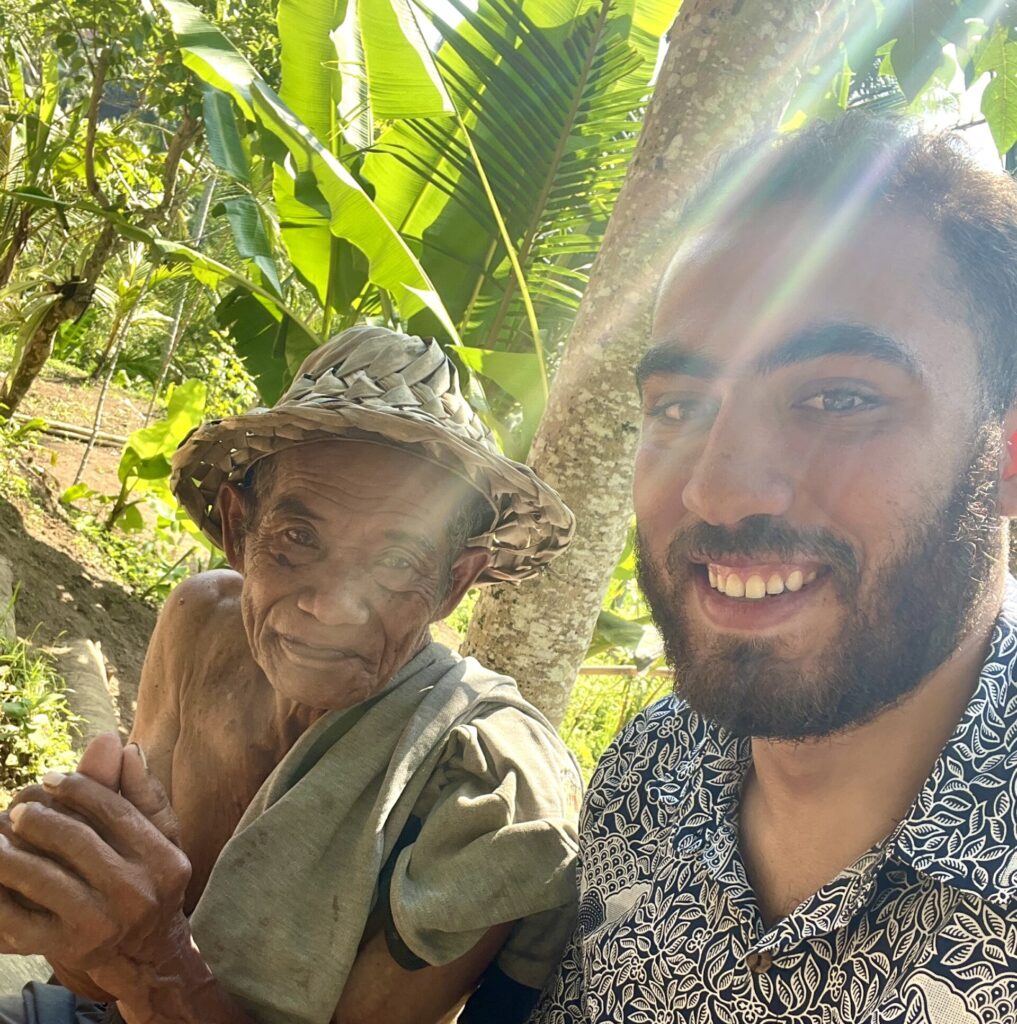
You know that feeling when you’re scrolling through Instagram, seeing all these amazing places, and thinking, “I wish I could afford to travel like that”?
Well, I’m here to share a game-changer that transformed how I explore the world—and it’s all through volunteering!
Look, I know what you’re thinking—”volunteering”” might sound like hard work, but trust me, it’s the most incredible way to truly experience a place.
The money truth that changed my travel game is pretty simple – you get a comfortable place to stay that feels more like home than any hostel bunk ever could, and trust me, these spots are often incredibly cozy.
Your meals are all covered, and you’ll even pick up some amazing cooking skills along the way – I can now make pasta from scratch thanks to my Italian host family!
The cultural experience you get is something you can’t put a price tag on because you’re living the real deal, not just hitting tourist spots.
Your schedule stays flexible too – help out for a few hours, and the rest of the time is yours to explore.
Want to know the best part?
The money you save is just a bonus. The real treasure is the stories you’ll collect, the friends you’ll make, and the places you’ll discover that most tourists never see.
In this guide, I’ll share everything you need to know about budget travel with Workaway, how it can transform your travel experiences in 2024, and why volunteering is the key to seeing the world without breaking the bank.
Types of Work Exchanges Available on Workaway
1. hospitality:
Work in hostels, hotels, or guesthouses is one of the most popular types of workaway experiences. Tasks can include:
- Assisting with reception duties and checking in guests
- Helping with housekeeping or cleaning common areas
- Organizing events like trivia nights or guided tours
2. eco-projects,
If you love nature and sustainable living, Workaway has countless opportunities to volunteer on:
- Organic farms, learning about permaculture and gardening
- Eco-lodges focused on sustainable tourism
- Reforestation or renewable energy projects
These experiences offer the chance to work outdoors while contributing to environmental conservation efforts. You’ll often gain meals, a place to stay, and a wealth of knowledge about sustainable practices.
4. Social Impact & Community Work
For travelers who want to make a difference, community-based projects are ideal. These may involve:
- Teaching English or other skills to local children
- Helping with construction or renovation in underprivileged areas
- Assisting with social work or community outreach programs
5.Digital Nomad Opportunities
If you’re skilled in the digital world, many hosts seek help with:
• Social media management
• Content creation (e.g., writing or photography)
• Website design or maintenance
These projects are perfect for travelers who want to keep their professional skills sharp while living abroad. Some hosts even offer flexible work schedules, giving you more time to explore.
How to Start Your Workaway Journey: A Step-by-Step Guide
I want to tell you all the details you need to know to live a similar experience—how you can live like a volunteer without paying money and benefit from this experience and be able to do it in any country you want.
Step 1: Create an account
To start applying for opportunities, you’ll need to pay an annual subscription fee of $63 if you are single person.
If you are Couples or friends traveling together will cost you 72$ which means Just 36.50 $ per Workawayer, Personally, I found this small investment incredibly worthwhile as it opened doors to countless enriching experiences throughout the year.
Step 2: Build a Competing Profile
Once you’ve registered, the next step is to create a detailed profile. This is your chance to introduce yourself to potential hosts. Include:
- A clear and friendly profile photo
- Details about your skills, hobbies, and interests
- Examples of relevant experiences or certifications (if any)
Remember, your profile is your first impression. A well-written, informative profile increases your chances of being accepted by hosts who align with your goals and interests.
Step 3: Search for the Perfect Opportunity
Now comes the exciting part—browsing volunteer opportunities. Use Workaway’s filters to:
• Select your desired country and city
• Narrow down opportunities by type, such as teaching, hospitality, or sustainability projects
• Read host profiles carefully, paying attention to reviews and detailed descriptions of tasks
Workaway makes it easy to find opportunities that fit your preferences. For instance, I was once drawn to a listing from a family running a small organic farm in Italy. Their glowing reviews and detailed explanation of tasks made me confident in choosing them as hosts.
Step 4: Contact Potential Hosts
Once you’ve found a suitable opportunity, reach out to the host using the platform’s messaging system. Your message should be thoughtful and specific.
- Mention why their project caught your attention
- Highlight how your skills and interests align with their needs
- Politely ask any questions you might have
For example: “Hello [Host’s Name], I’m very excited about the opportunity to help at your eco-lodge. As someone passionate about sustainability, I’d love to contribute to your project while learning more about renewable energy practices.”
Avoid generic messages. A personalized note shows genuine interest and improves your chances of getting accepted.
Step 5: Contact Multiple Hosts
It’s wise to send inquiries to multiple hosts. Not all applications will be accepted, and availability might be limited. Stay open-minded, and don’t be discouraged if your first choice doesn’t work out. Often, a host who seems like a second option may turn out to be the best fit!
Step 6: Handle Your Travel Logistics
While Workaway provides connections, it doesn’t cover your travel expenses. You’ll need to:
• Secure your visa if required for the destination country
• Plan and pay for transportation to your host’s location
• Budget for any additional costs, such as sightseeing or personal expenses
Hosts typically provide food and accommodation, but it’s essential to confirm the details beforehand.
Step 7: Make the Most of Your Time Off
Most Workaway hosts allow two or three days off each week. Use this time to explore the local area, immerse yourself in the culture, and enjoy some well-earned rest. For me, volunteering in a remote village in Japan meant spending my free days hiking stunning mountain trails and visiting nearby hot springs—a perfect blend of work and leisure.
Pros and Cons of Volunteering
Volunteering with Workaway can be one of the most enriching ways to travel on a budget, experience local life, and pick up skills you might never learn in a typical vacation.
However, it’s not for everyone, so here’s a look at the key pros and cons to help you decide if Workaway is right for you.
Pros of Volunteering
• Major Money Saver
Workaway helps cut down on the biggest travel expenses—accommodation and food.
By exchanging your time and skills for room and board, you save a significant amount that you can put toward other experiences on your trip.
Over time, these savings add up, allowing you to travel for longer or explore additional destinations.
• Hands-On Cultural Immersion
Unlike traditional tourism, Workaway gives you the chance to live with locals and experience their daily lives up close.
You’re not just a visitor; you’re actively involved, often in small, rural communities or unique projects that most tourists don’t get to see. This kind of experience brings a deeper understanding of the culture and a genuine connection to the places you visit.
• Skill-Building and Personal Growth
From organic farming and animal care to language skills and teaching, Workaway offers a chance to gain skills you might not have considered before.
These hands-on experiences aren’t just valuable for personal growth—they can even look great on a resume, especially if you’re working in fields like education, hospitality, or environmental work.
• Connections and Lasting Friendships
When you’re living and working with others every day, you’re bound to make meaningful friendships.
Many Workaway travelers find their best memories are the people they meet along the way, from other volunteers to hosts who become lifelong friends.
Cons of Volunteering with Workaway
• Time Commitment
While Workaway gives you flexibility, many hosts prefer volunteers who can stay for a minimum of 2-3 weeks to make the experience worthwhile for both parties.
This means you need enough time to truly settle into a location. If you’re on a tight schedule or only have a week, the time commitment might not be feasible.
• Travel and Registration Costs
Although Workaway can save you a lot on food and lodging, it’s not entirely free.
There’s a small annual registration fee, and you’ll need to cover your own travel costs to get to your host location. Additionally, costs like visas, insurance, and transportation to reach remote hosts are also on you.
This can add up, especially if you’re volunteering in several different countries.
• Unpredictable Living Situations
While many hosts provide comfortable accommodations, others may offer more basic setups that can be a bit of a challenge, especially if you’re used to creature comforts. It’s wise to read reviews and ask about the living conditions to avoid surprises.
• Commitment to Work Responsibilities
Although you’re not paid, your host is relying on your help.
You’ll be expected to contribute fully and responsibly to your assigned tasks, and this can limit your freedom to explore the surrounding areas as much as you might on a traditional holiday.
Balancing work expectations with your travel goals is key to making the most of your experience.
Volunteering with Workaway is a fantastic way to travel on a budget, experience new cultures, and build real skills. It’s ideal for those who have a flexible schedule and a strong interest in immersive,
hands-on travel experiences. But remember—it requires time, dedication, and a willingness to adapt to new environments. For those willing to dive in, Workaway can transform how you see the world.
